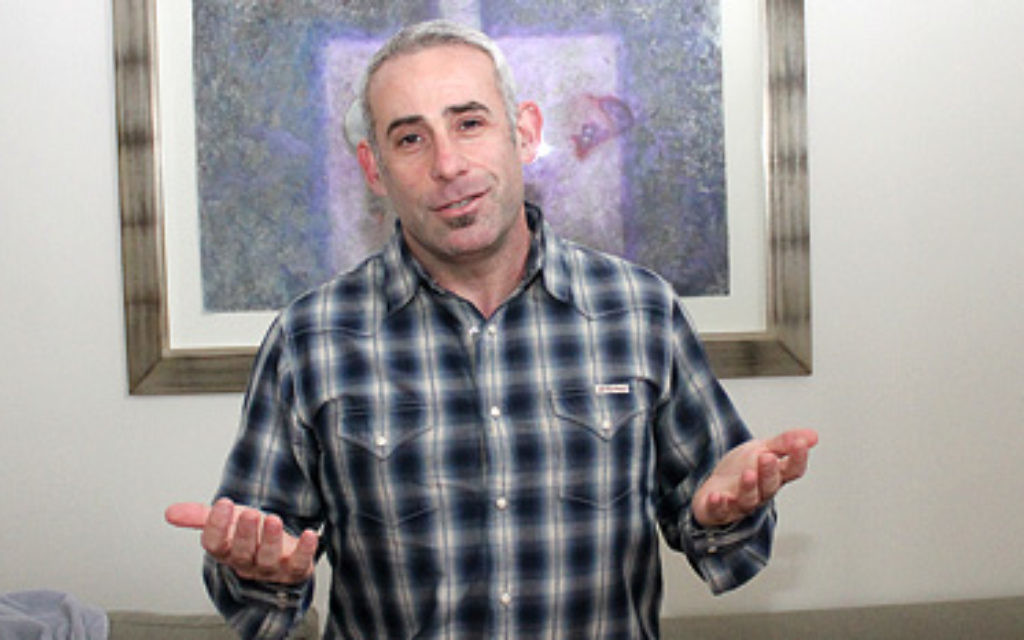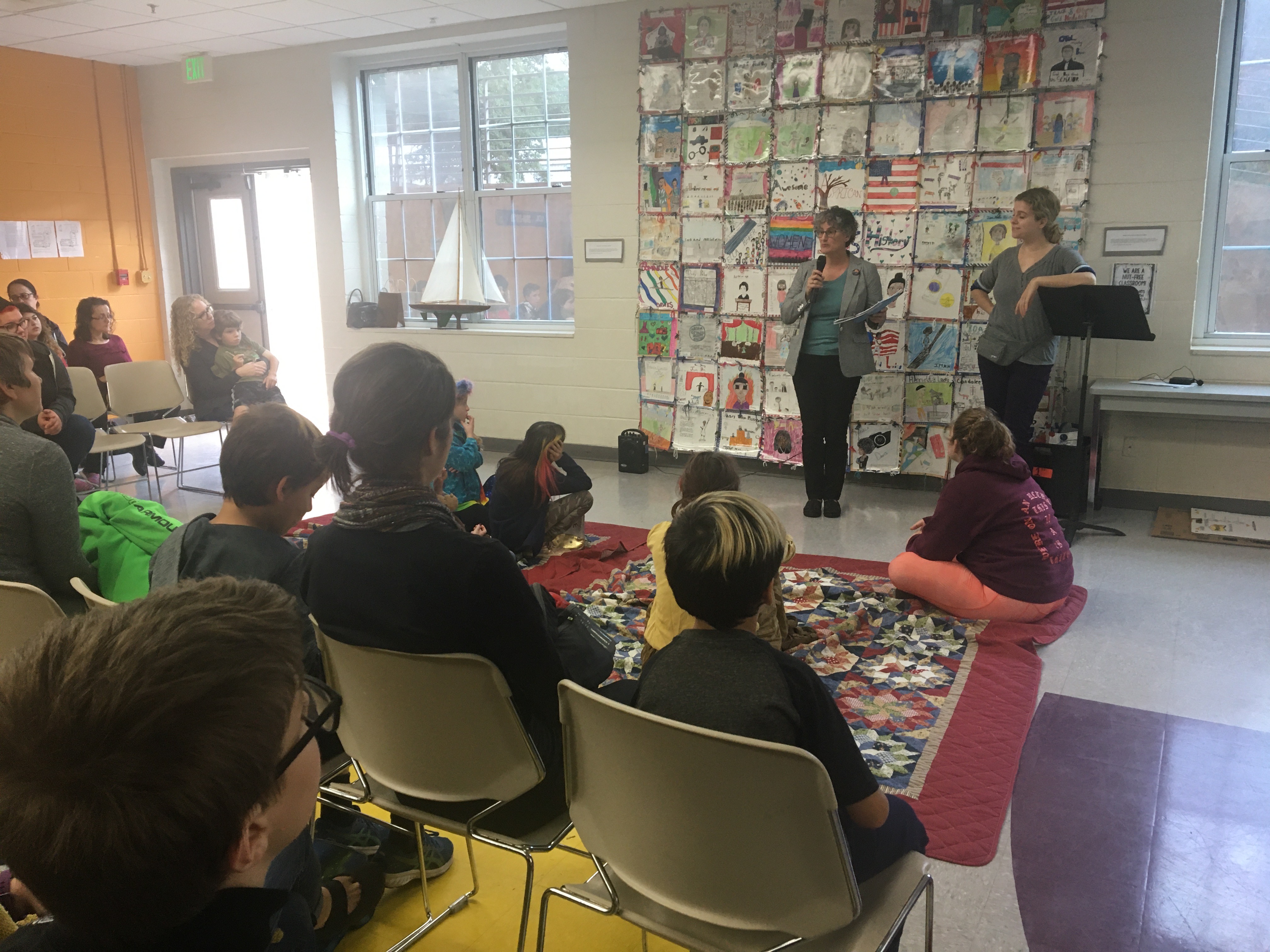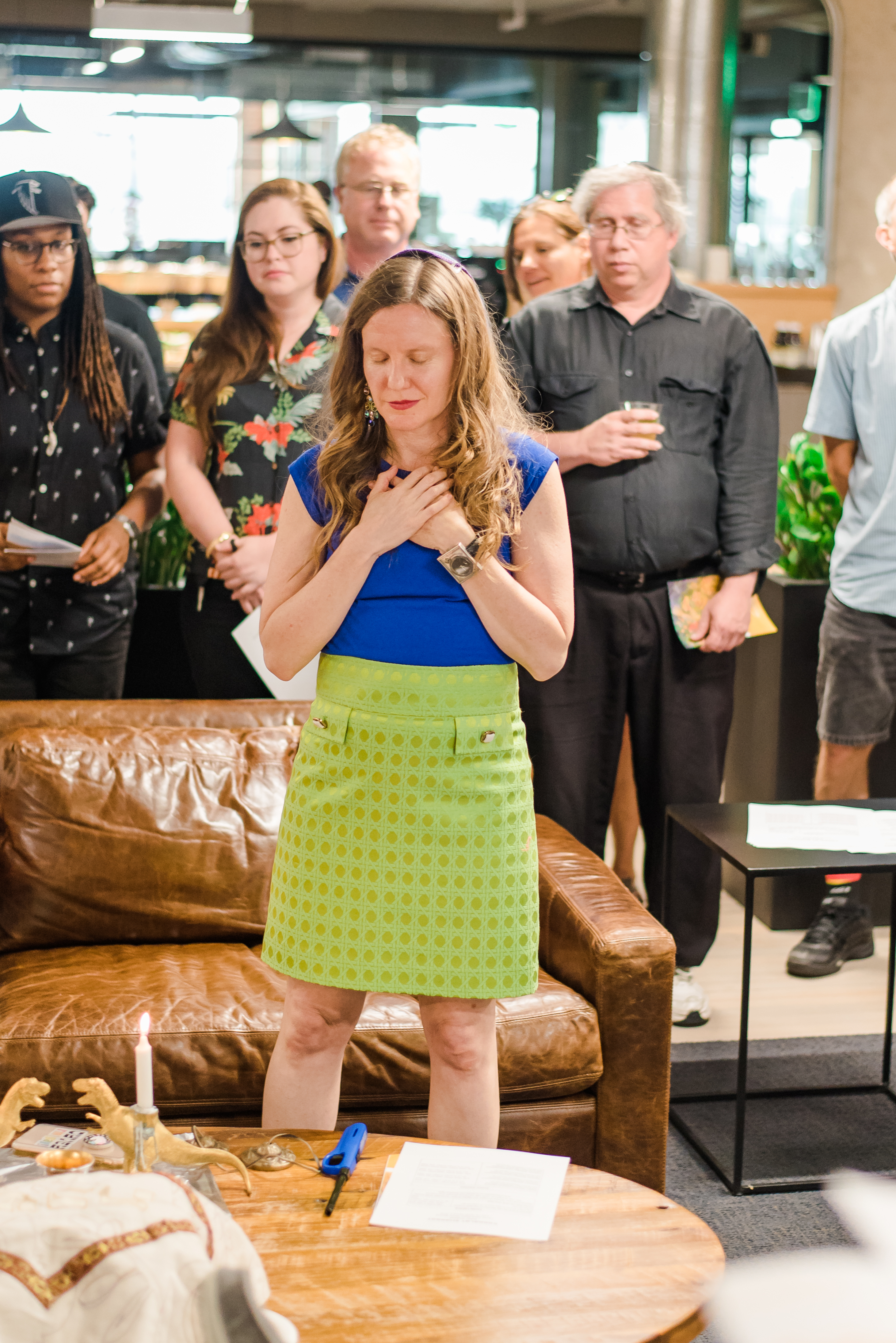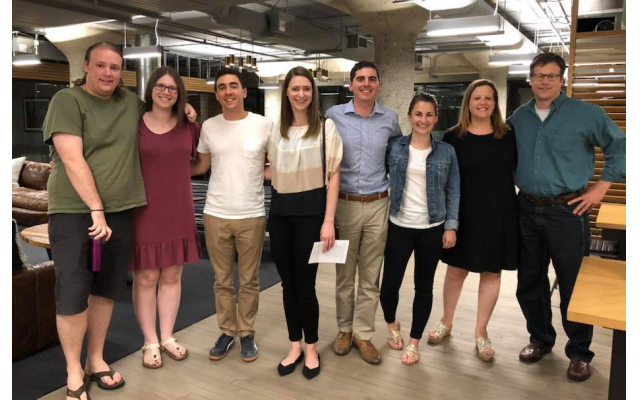Atlanta’s New Approach to Interfaith Families
Atlanta's Jewish community is home to many interfaith families, some of whom are comfortable within the walls of a synagogue and some who look elsewhere for community.
When Congregation Bet Haverim began its family Sunday School program this week with an abbreviated version of the morning prayer service, Robyn Painter was on the front row, her arms wrapped affectionately across the shoulders of her two young sons. The words and melodies of the “Shema” and the other familiar prayers came to her easily and freely.
But Painter, who has been a member of the synagogue, is a practicing Lutheran, who is bringing up her children as Christians and as Jews. She and her husband Peter, who is Jewish, attend worship services at both a local Lutheran church and at Congregation Bet Haverim, which is affiliated with the Reconstructionist branch of Judaism. They even alternate Sunday schools. This year Jewish, next year Lutheran.
Yet Painter, who is a civil rights lawyer, and her husband, who is an immigration attorney with a nonprofit legal services corporation, have never felt more fulfilled spiritually.
“I would say that the way we practice religion in our home is more relevant to me than the way I grew up with religion,” she says. “I hope it’s relevant to our kids in the same way.”
Her decision even has the approval of Bet Haverim’s rabbi, Josh Lesser, with whom, she says, she consulted to find a Lutheran congregation that would be a good fit for the couple and their children.

Lesser, who has served Bet Haverim for the past 20 years, has no reservations about the way he welcomes all those who attend his synagogue.
“What has been transformative here is that we treat everyone as full human beings when they walk through the door, regardless of their faith identification. This synagogue was founded on the vision of being radically inclusive.”
That welcoming approach to interfaith couples and their children has received the endorsement of the Jewish Federation of Greater Atlanta, which earlier this year partially funded a second rabbi. Bet Haverim’s PROPEL Innovation Fund Grant has been awarded, initially for two years.

The new rabbi is Pamela Gottfried, who gave up her position as the longtime dean of Jewish studies at The Weber School to take on the new challenge. Her job at Bet Haverim is to stimulate greater participation by those in the Atlanta Jewish community who are unaffiliated, in interfaith relationships or not, even if they indicate they wish to remain unaffiliated.
“It’s not about getting people to join. It’s not about membership,” she emphasized. “It is a totally different model. Basically, the model is about building a bridge to the community, a Jewish bridge.”
The program is part of an ambitious effort in Atlanta to take a much more aggressive approach to reaching out to those who have shunned local congregations, particularly those in interfaith marriages or relationships who have felt unwelcome.
A study of the Atlanta Jewish community funded by the Federation in 2016 found that only 13 percent of interfaith couples feel strongly that they are a part of the local Jewish community. Yet 46 percent felt that they have not had the opportunity to be as Jewish as they would like to be. With the intermarriage rate among non-Orthodox Jews exceeding 72 percent, according to A Portrait of Jewish Americans in 2013 by the Pew Research Center, that’s a big number.
To help tackle the problem, the Jewish Federation organized a two-day conference in late April that attracted over 100 religious leaders and other Jewish professionals from as far away as Boston and Denver. Eric Robbins, the Federation’s president and CEO, later characterized the conference as an attempt “to reframe multi-heritage relationships as an opportunity, not an obstacle.”
He later elaborated the need for welcoming interfaith families and individuals for the online publication, eJewish Philanthropy.
“It requires not merely ‘accepting’ partners who aren’t Jewish but truly ‘seeing’ them, learning about their lived experiences and letting them know we honor them.”
Reaching out to the unaffiliated, interfaith Jewish community has been the primary mission of the InterfaithFamily, a national organization supported by over three dozen prominent Jewish funders and philanthropists, including The Marcus Foundation in Atlanta.
InterfaithFamily has offices in a number of American cities, including Atlanta, that bring together interfaith couples in a variety of nontraditional settings and provide rabbinic services and counseling for those seeking help for life cycle events, including marriage.

Heading up the office in Atlanta is Rabbi Malka Packer-Monroe, who works not only with individuals but with Jewish organizations to understand the needs of those she serves, as well as provide an enthusiastic and genuine welcome.
“I think a lot of the institutions here are tolerant. No one wants to be somewhere where they feel like they’re tolerated, but what are you going to do to make me feel like you want me to be here, not just you want my money. So many Jewish organizations, for good reason, are very focused on membership and fees.”
A number of synagogues and temples in Atlanta have worked hard in recent years to make an important commitment to those in interfaith relationships. Temple Sinai in Sandy Springs has an extensive program for interfaith couples and families and provides free membership for all couples under the age of 32. Likewise, The Temple defrays the cost of membership for those in their 30s and has established the Leven Family Jewish Identity Institute with financial support from the CEO of the Georgia Aquarium, Mike Leven, to provide special programming.
Still there are those, particularly so-called millennials in their mid-20s to mid-30s, who resist appeals to join a temple or synagogue in favor of a community of friends and acquaintances who meet more informally for dinner and a discussion of how to navigate the complexities of interfaith relationships. That new sense of community is often provided by an organization like InterfaithFamily, according to Rabbi Packer-Monroe.
“Most of these couples that come to me are not affiliated with any Jewish organization, whether it’s synagogue or JCC or anything,” she said. “Some of them are just not looking for that, you know, especially the millennials. And so a lot of the couples we work with are joining like maybe a gym and that’s about it.”
Even for those who choose to join a synagogue like Bet Haverim, there is less emphasis in the family setting on ritual and dogma.
Jason Martin and Jenny Hoffner, who were at the Sunday morning program Oct. 27 and are raising their two children as Jews, often pick and choose elements from the religious tradition each grew up with. He, with a smattering of Catholicism and she, with a background in Reform Judaism.
“All faiths are connected,” Hoffner said she explains to her children. “We are all one. All these religions are saying the same thing. Chanukah is about light and darkness. It’s about light at a dark time of the year, the winter solstice. The story of Christmas is also a story of a spiritual light in the winter darkness.”
So along with their menorah and the candles, they’ll have a Christmas tree.
Painter and her family also plan an important celebration of Chanukah, with a social service project for the family as part of the celebrations. They are also organizing a big party for one evening that’s midway through the holiday with as many as 150 guests and a band.
They, too, will have a big tree, with a star of David on top.




comments